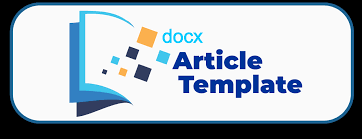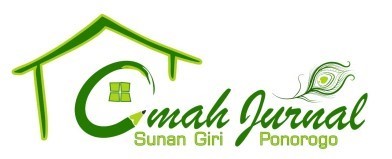Pelatihan Agen Toleransi bagi Generasi Z di Era Disrupsi
Religious Tolerance Agent Training for Generation Z in the Era of Disruption
DOI:
https://doi.org/10.37680/amalee.v3i2.1884Keywords:
Generation Z, Tolerance Agent, TrainingAbstract
Generation Z as active internet users has the potential to be exposed to radicalism issues which then have an impact on intolerance, especially in this era of disruption. Tolerance agent training for Generation Z which is carried out aims to increase understanding of religious tolerance, so that Generation Z can become agents of change in society in order to create a tolerant Indonesian society. Specifically, the delivery of material in this PkM activity was carried out by means of lectures, questions and answers, games, and individual exercises. The results of the PkM activities showed that 96.4% of participants understood the material presented, 98.8% of participants' satisfaction with the implementation of the activities, and 83% of participants' readiness to become tolerance agents. Based on these data, it can be concluded that there is an increase in participants' understanding of religious tolerance and the readiness of participants to become agents of religious tolerance.
References
Affandi, A., Sucipto, M. A., & Muhid, A. (2016). Modul participatory action research (PAR) untuk pengorganisasian masyarakat (community organizing). Lembaga Penelitian dan Pengabdian kepada Masyarakat, UIN Sunan Ampel Surabaya, Surabaya, 2016. https://www.worldcat.org/title/modul-participatory-action-research-par-untuk-pengorganisasian-masyarakat-community-organizing/oclc/966634956
Hui, J. Y. (2010). The internet in indonesia: Development and impact of radical websites. Studies in Conflict and Terrorism, 33(2), 171–191. https://doi.org/10.1080/10576100903400605
Kanwil Kementrian Agama Prov.NTT. (2019). Data Keagamaan Kanwil Kementerian Agama Prov. NTT. Kementrian Agama. https://ntt.kemenag.go.id/data/data/umat.php
Kurniawan, R., Alhakim, A., Aurellia, A., S., &. S. (2021). Sosialisasi Menumbuhkan Semangat Toleransi di Tengah Pandemi Pada Siswa SMK Maitreyawira Tanjungpinang. Jurnal Pengabdian Masyarakat IPTEKS, 7(2), 169–176. https://doi.org/10.32528/jpmi.v7i2.4843
Mila, S., & Kolabani, S. L. (2020). Religious Harmony and Tolerance in Disruption Era: A Study of Local Wisdom in Watu Asa of Central Sumba. Walisongo: Jurnal Penelitian Sosial Keagamaan, 28(2), 171–194. https://doi.org/10.21580/WS.28.2.6381
Mowery, D. C., & Simcoe, T. (2002). Is the Internet a US invention? - An economic and technological history of computer networking. Research Policy, 31(8–9), 1369–1387. https://doi.org/10.1016/S0048-7333(02)00069-0
Nurhayati, A. (2017). Toleransi Antar Umat Beragama di Desa Selama Kecamatan Reok Kabupaten Manggarai Provinsi Nusa Tenggara Timur (Tinjauan Akhlak).
Nuryadi, Astuti, T. D., Utami, E. S., & Budiantara, M. (2017). Buku ajar dasar-dasar statistik penelitian. Universitas Mercu Buana Yogyakarta.
Saputra, R. E. (2018). Api dalam sekam. PPIM UIN Jakarta – UNDP Indonesia, 1(1).
Selvia, S., Rahmat, M., & Anwar, S. (2022). Tingkat Pemahaman Mahasiswa Pendidikan Agama Islam di Perguruan Tinggi Umum dan Perguruan Tinggi Keagamaan Islam Negeri terhadap Konsep Moderasi Beragama. Intizar, 28(1), 1–9. https://doi.org/10.19109/intizar.v28i1.11667
Tumanggor, R. O., & Suharyanto, C. (2020). Pelatihan Spiritual Well being Untuk Membangun Sikap Toleransi Bagi Kaum Remaja SMA Lia Stephanie. Prosiding Serina UNTAR 2020, December 2020, 1183–1185. https://www.researchgate.net/publication/348945738_Pelatihan_Spiritual_Well-being_untuk_Membangun_Sikap_Toleransi_bagi_Kaum_Remaja_SMA_Lia_Stephanie
Wijoyo, H., Indrawan, I., Cahyono, Y., Handoko, A. L., & Santamako, R. (2020). (PDF) GENERASI Z & REVOLUSI INDUSTRI 4.0. Pena Persada. https://www.researchgate.net/publication/343416519_GENERASI_Z_REVOLUSI_INDUSTRI_40
Downloads
Published
How to Cite
Issue
Section
License
Authors who submit manuscript retain its copyright and grant Amalee right of first publication licensed under a Creative Commons Attribution-ShareAlike 4.0 International License (CC BY-SA 4.0) that allows others to access (search, read, download, and cite), share (copy and redistribute the material in any medium or format) and adapt (remix, transform, and build upon any material) the work for any lawful purpose, even commercially with an acknowledgement of the work's authorship and initial publication in Amalee: Indonesian Journal of Community Research and Engagement.














